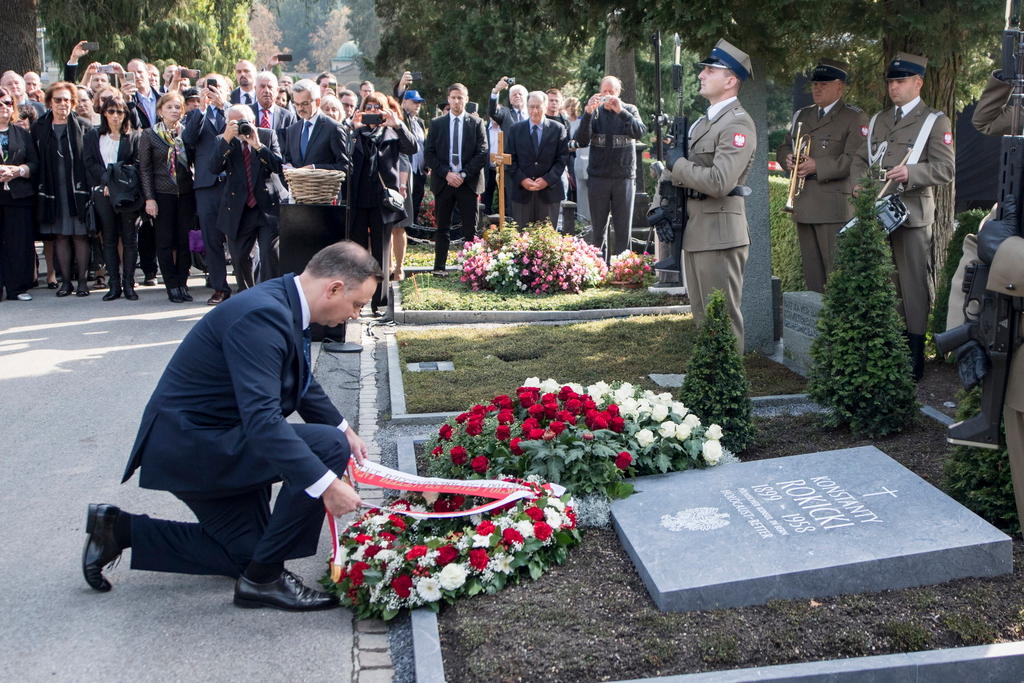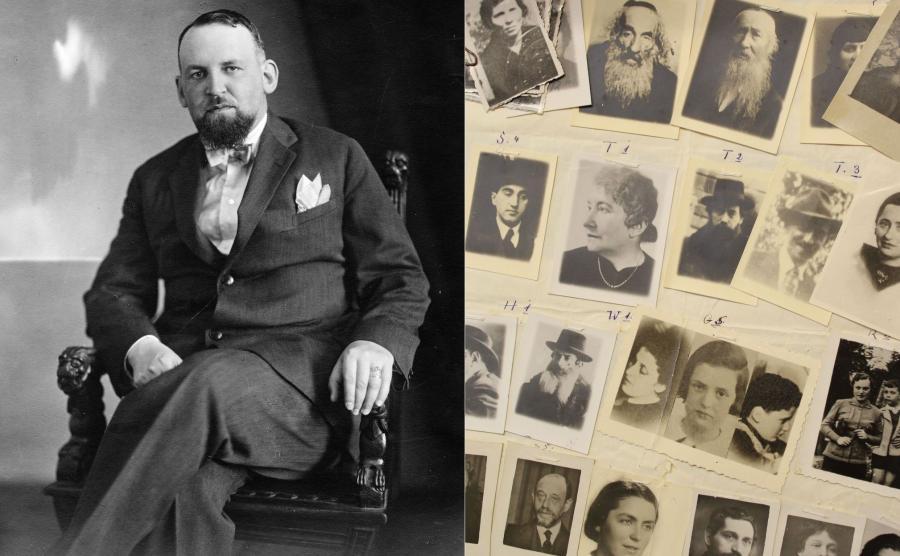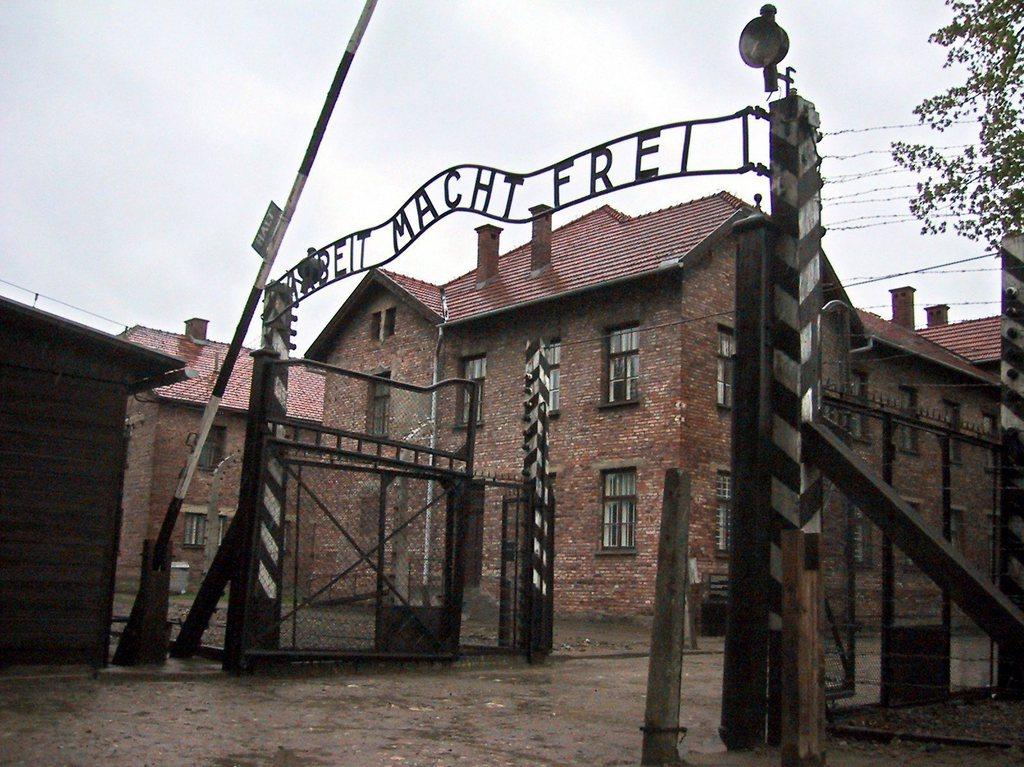Polish president honours former vice-consul to Bern

On Tuesday, Polish President Andrzej Duda laid a wreath at the tomb of Holocaust rescuer Konstanty Rokicki in Lucerne, to honour the former Polish vice-consul's role in saving hundreds of Jews during the Second World War.
During his speech to Holocaust survivors, Duda recalled the dramatic period of the Second World War and described Rokicki (1899-1958) as a bright star in the black sky.
From 1939 to 1945, Rokicki worked as vice-consul of the Polish government in exile at their Bern embassyExternal link, and played a decisive role in saving hundreds of Jews from being transported to concentration camps, according to a press release.
In his honour, a memorial tombstone has been erected in Lucerne’s Friedental cemetery. Rokicki stayed in Switzerland after the war and died in Lucerne in 1958.
As a member of the so-called “Bern group”, Rokicki helped to issue false passports to people who were persecuted so that they could flee abroad. Until recently, his involvement was hardly known in Switzerland.
According to the Polish embassy in Bern, Rokicki issued Paraguayan passports for 2,200 Jews who had been threatened with death between 1942 and 1943. He was assisted by his colleague Juliusz Kühl.
The Polish embassy said blank passports were obtained for bribes from the Paraguayan consul of honor in Bern, and the money for their purchase came from Jewish organisations and the Polish government in exile.
Rokicki and Kühl benefited from the support and protection of the then Polish ambassador, Aleksander Ładoś, and his deputy Stefan Ryniewicz. The passport counterfeiting group also included a representative of the World Jewish Congress, Abraham Silberschein, and the Zurich rabbi Chaim Israel Eiss. The group received the support of an anonymous Swiss policeman who tried to stop an ongoing police investigation into the matter.
The passports are thought to have saved an estimated 700 to 800 lives, of whom half were known to the Polish embassy. At least 20 of those rescued are still alive.

More
How a Polish envoy to Bern saved hundreds of Jews

In compliance with the JTI standards
More: SWI swissinfo.ch certified by the Journalism Trust Initiative

You can find an overview of ongoing debates with our journalists here. Please join us!
If you want to start a conversation about a topic raised in this article or want to report factual errors, email us at english@swissinfo.ch.